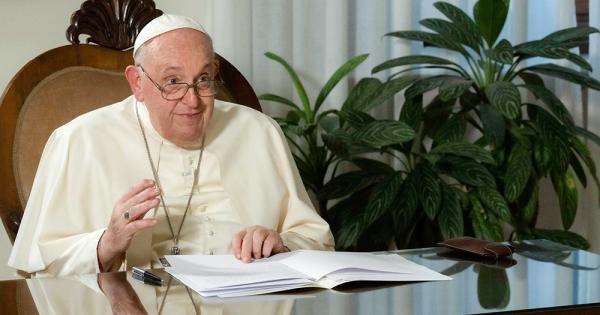Pope Francis finds himself amidst a rising tide of dissent within the Catholic Church, sparked by recent decisions that some view as straying from traditional church doctrine.
One particularly contentious issue emerged in December with the publication of a document, approved by the pope, exploring the idea of blessing couples in non-standard situations, including same-sex couples. While the document clarified that it didn’t alter the church’s stance on homosexuality, it prompted a joint letter from Catholic clergy and scholars urging others to disregard it.
Throughout his 11-year tenure, Pope Francis has made waves by suggesting that even atheists could attain salvation, expressing non-judgment towards homosexuals, and adopting a more lenient stance on issues like abortion and remarriage.

Experts see these tensions as symptomatic of an ideological clash within the church between those advocating for reform and those seeking to preserve traditional teachings. This mirrors broader societal divisions between liberal and conservative ideals.
Rather than deviating from core faith principles, Francis appears to aim at extending spiritual guidance to individuals whose lives don’t conform to traditional family norms without altering church doctrine.
Despite the dissent, experts don’t anticipate calls for the pope’s removal, citing the church’s historical resilience against schisms. Michele Dillon, a Catholic Church specialist, notes Francis’ emphasis on a pastoral approach, advocating for engagement with people’s diverse realities while keeping them connected to the church.
The recent open letter opposing same-sex blessings reflects a conservative backlash, accusing Francis of contradicting Scripture and tradition. In response, the pope criticized such opposition as hypocritical, citing their silence on other sinful behaviors.

While some criticism extends to political matters, such as Francis’ stance on Ukraine, it remains distinct from religious controversies.
The pope’s efforts to modernize church rhetoric and engage marginalized Catholics have drawn praise and condemnation. Critics, like Bishop Joseph Strickland, argue for a return to traditional values, but Francis appears committed to inclusivity.
Despite concerns over doctrinal changes, experts stress that Francis hasn’t altered core Catholic beliefs. However, his approach may challenge entrenched conservatism within the church.
As dissent simmers, questions arise about Francis’ future, including speculation about his health and the possibility of abdication. Yet, the pope remains resolute in his convictions.
While much of the dissent emanates from the United States, the likelihood of a significant schism remains slim within the structured framework of the Catholic Church, despite ongoing internal debates.

